On-Campus Testing Confirms 15 Total Positive Cases
COURTESY OF @FORDHAMACCOUNTABILITY VIA INSTAGRAM
An anonymous submission on the new student-run Instagram account @fordhamaccountability shows students gathered on Edwards Parade in a large group without masks.
September 19, 2020
On Sept. 2, Fordham University released the 14-day rolling average of total coronavirus tests conducted by the university at both Lincoln Center and Rose Hill. The tests found two positive cases at the Lincoln Center campus and three positive cases at the Rose Hill campus. Since the initial report, those cases have recovered and only one current case remains at the Lincoln Center campus while 11 are at Rose Hill.
This information appears on Fordham’s COVID-19 Testing Dashboard, which was created to “illustrate and track the impact” of the pandemic for students and faculty. The dashboard will be continually updated with a 14-day rolling average of test results, according to the webpage.
The current positive cases resulted from tests administered between Sept. 4 and Sept. 17. Testing began at both campuses on Aug. 15, and the university plans to administer around 300 tests per day until classes switch to online for Thanksgiving break, according to Keith Eldredge, assistant vice president and dean of students at Lincoln Center. Students will be chosen at random to be tested.
Within this two-week period, the university has conducted 3,649 tests on both campuses and calculates the average infection rate to be 0.33%, which is an increase from the infection rate two weeks prior.
After the first two weeks of the semester, the university released its initial report of testing data, based on tests administered between Aug. 18 and Sept. 2, and calculated a 0.28% average infection rate; in the next two weeks, between Sept. 3 and Sept. 21, the infection rate decreased to 0.02%, with only case present at the entire university.
When students were tested at the start of the semester upon arrival to the campus, they were asked to “limit their activities and avoid gatherings until they received (the results),” Eldredge said. This was to limit any potential unknown spread of the virus.
Students who live on campus who tested positive for COVID-19 were sent to a designated area on campus to isolate, Eldredge said. These students are provided with three meals a day and a virtual daily health assessment by a clinical staff member.
For students who tested positive and live near campus, they were directed to quarantine at their off-campus residence, if possible. They will also be provided with the virtual daily health assessment by a staff member.
Throughout the past week, students criticized Fordham on social media for its lack of transparency regarding this data. Videos of large student gatherings, both university-sanctioned and not, as well as reports of other schools closing due to outbreaks have prompted concerns about whether COVID-19 will spread on Fordham’s campuses.
Recently, a student-run Instagram account, @fordhamaccountability, was created for students to send photos, text or videos of Fordham students or staff behaving inappropriately under COVID-19 prevention measures.
The account stated: “If there is something that Fordham is doing that is making you or others feel unsafe don’t be afraid to speak up!”
There are currently four posts on the account’s page that show groups of Fordham students gathered without masks in the city near Clinton Hall, at Belmont and 189th Street, and on the Rose Hill campus lawn, Edwards Parade.
“What motivated us to start this account was seeing fordham students come back to the bronx and act irresponsibly and ignorantly during this pandemic,” the creator of the account said.
As COVID-19 cases continue to surge at college campuses across the country, counties where college students make up at least 10% of the population have seen the largest surge. Fearing the infection of the greater Bronx area and Manhattan, Fordham students have routinely expressed concerns about how the campus reopening would affect longtime NYC residents.
The creator felt that students might be hesitant to hold their peers accountable when they saw behavior that made them uncomfortable. However, the platform of the account and the anonymity of submissions makes it less intimidating to hold other students accountable.
Fordham cases had remained relatively low compared to other New York state universities until this past two-week spike. The average total number of cases colleges have had since opening in New York is 18; Fordham has now had a total of 15 and 12 of those are currently active.
The number of cases will continue to be monitored periodically and updated every two weeks on Fordham’s COVID-19 Testing Dashboard.

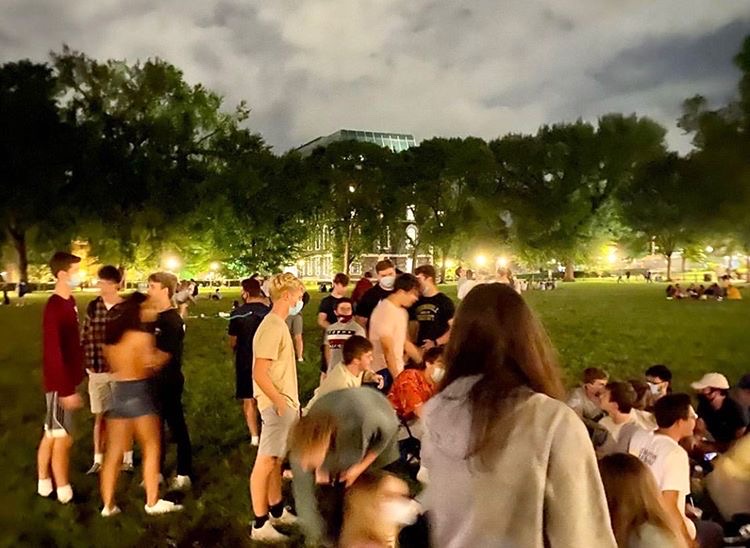
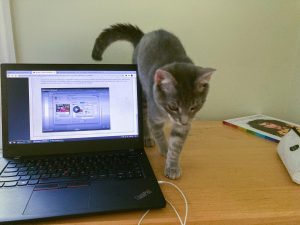
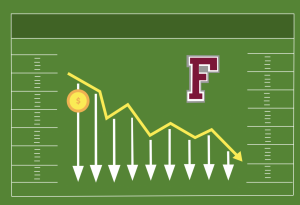
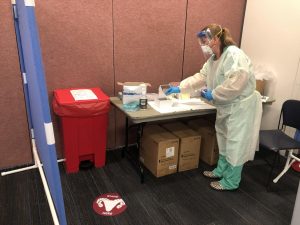
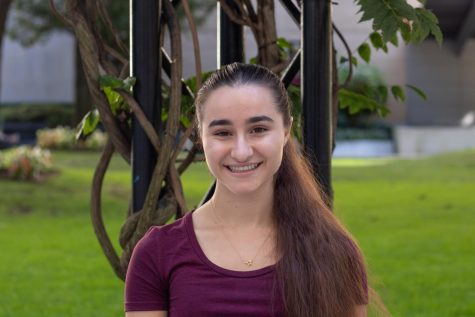









Pigbitin Mad • Sep 29, 2020 at 4:40 pm
I know the parent of a Fordham student visited home on the weekends. The daughter did not have any symptoms but now the mother has been sick for more than two weeks. I thought students were not to be allowed to leave campus during the entire semester.
It’s not just Fordham, my nephew who also attends a college in Connecticut also is free to come and go without getting tested??? WTF???
Sorry, but students should not be going home every weekend even without Covid, but especially not with it since so many people are asymptomatic in that age group.